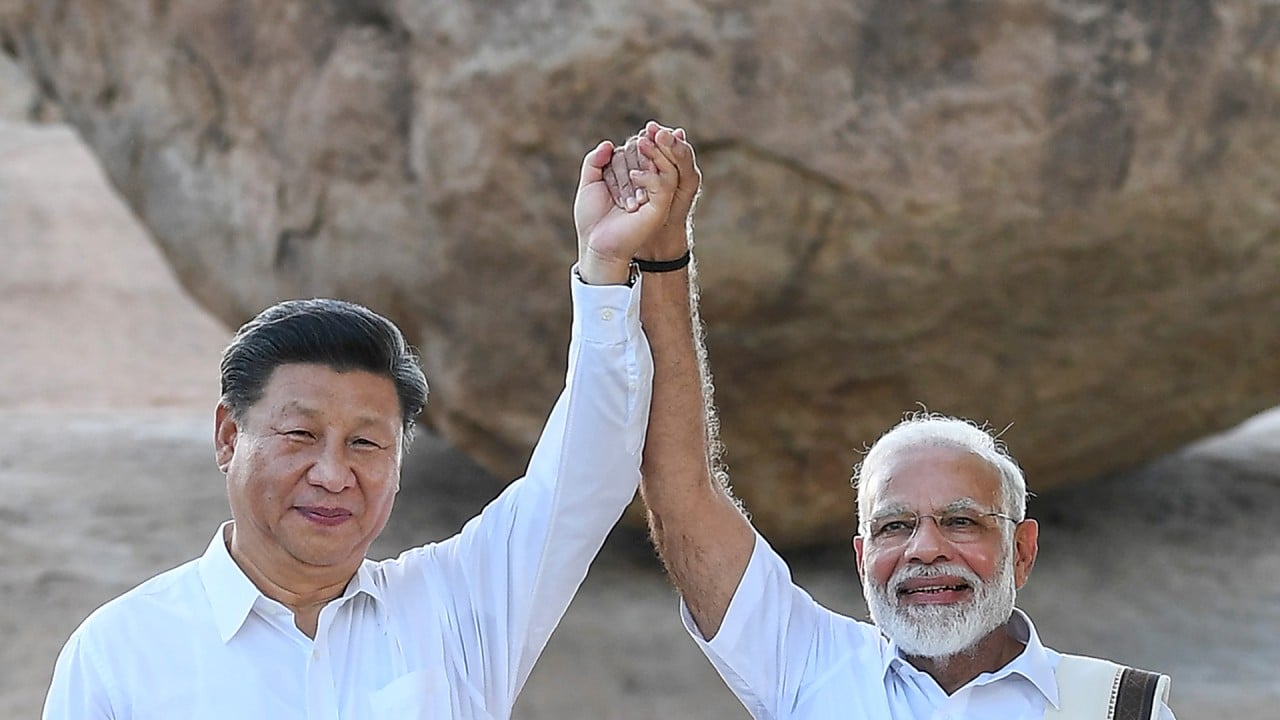
India is caught between the need for good China relations and rising public anger
- Indian officials have used cautious rhetoric in the hope of easing tensions with China and keeping up Delhi’s foreign policy balancing act between East and West
- Public outrage over Indian soldiers dying in Ladakh and efforts to get the Indian media to toe the line on the one-China principle are complicating Delhi’s diplomacy
In the wake of recent tensions between China and its neighbours, India had an opportunity to lead a middle-power response to China in the Asia-Pacific. India is the only country of comparable size in the region and has built strong security ties with countries such as Japan and Vietnam in recent years. It also has enviable maritime capacity in the Indo-Pacific.
Take India’s official response to that crisis, for instance. In August, the Indian Ministry of Defence removed a document from its website which talked about Chinese transgressions in Ladakh. Meanwhile, Prime Minister Narendra Modi repeatedly avoided naming China in his public statements on the crisis.
Similarly, on the occasion of the Dalai Lama’s birthday this year, both Modi and Indian President Ram Nath Kovind refused to honour the Tibetan leader publicly. Earlier this month, as countries at the United Nations criticised China over its Xinjiang policies, India conspicuously sat out.
There are many reasons for India’s cautious rhetoric. New Delhi seems to be hoping its relatively soft approach on these sensitive issues might encourage China to draw down its troop build-up in the Himalayas. Foreign Minister Subrahmanyam Jaishankar recently expressed hope that the ongoing talks would yield some fruit.
Hope of a resolution to the crisis is not the only reason for India’s cautious talk, though. The China question is increasingly becoming part of a broader identity crisis in Indian foreign policy – of whether India belongs to the East or West.
India and the United States have similar interests in global governance, the maintenance of international rule of law and the promotion of democratic ideals. Tensions with China have only accelerated the growing convergence of interests.
Even so, India’s traditional foreign policy principles don’t allow New Delhi to abandon non-alignment in the pursuit of these common interests. India has always seen itself as a unique bridge between East and West – a culturally Eastern country with a Western political system.
Its foreign policy continues to reflect that, trying to keep one foot in each camp. Even as India strengthens ties with the West, it often speaks on the world stage about the exploitation of poorer countries by richer ones on issues such as climate change.

07:17
China and India: How economically linked are they?
Beijing is now testing this delicate balancing act. A complete breakdown in ties with China would be a threat to India’s non-alignment principle and a formidable obstacle to New Delhi’s membership in both the Eastern and Western camps, which are increasingly led by China and the US respectively.
Politics and Indian aspirations at the UN are also an important factor. India has long been a vocal aspirant for a permanent seat on the UN Security Council, and success is seen as the grand prize of India’s foreign policy pursuits.
While there are several challenges to India’s bid for a permanent seat, China presents the most formidable obstacle. As a veto-wielding member, a “no” from Beijing renders the effort dead on arrival, no matter how much support India gets from anybody else. New Delhi is therefore keen to be sensitive to China’s key concerns.
The problem for New Delhi is that public opinion in India is turning increasingly aggressive towards China. This month, the Chinese embassy in New Delhi bizarrely sent out guidelines to the Indian media ahead of Taiwan’s National Day. It told the Indian press not to violate the one-China principle.
As US-China tensions heat up, Taiwan’s firms pivot to India
This wasn’t the only time in recent months that Indian public opinion has broken with the official line. On the Dalai Lama’s birthday, for instance, several local politicians and officials – including in Ladakh and Arunachal Pradesh – publicly expressed their good wishes to the Tibetan leader.
In the months and years ahead, Indian diplomacy will be at odds with domestic public opinion on China. By issuing guidelines to the Indian media, Beijing has shown it cares about the latter, regardless of New Delhi’s official positions. That is going to make India’s delicate balancing act increasingly difficult and will keep Beijing suspicious of New Delhi.
Mohamed Zeeshan is editor-in-chief of Freedom Gazette. He has previously worked at the United Nations and his first book, on Indian foreign policy, will be out soon

